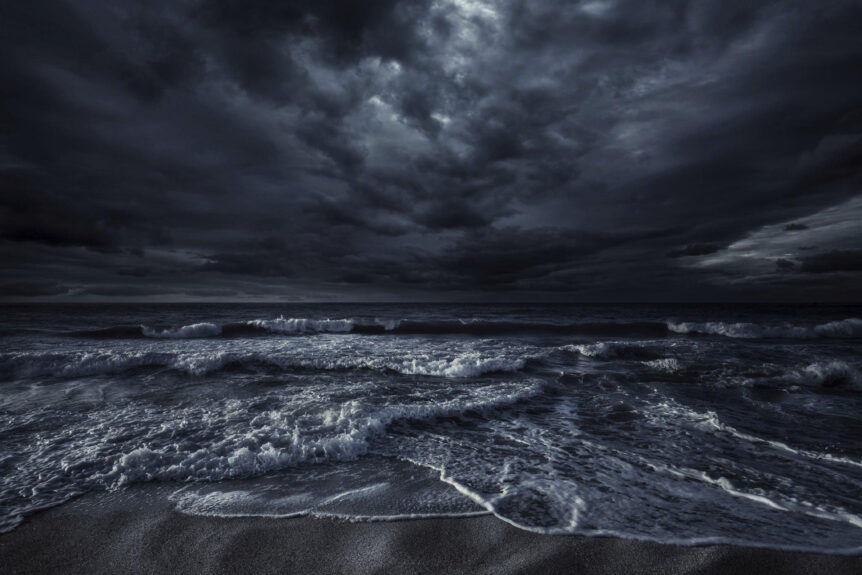“When is peak hurricane season?” This question looms large for the residents of Florida. It’s a time of heightened vigilance, preparation, and resilience. The Sunshine State is no stranger to the fury hurricanes bring, with its extensive coastline bordering the Gulf and Atlantic Coasts, making it more susceptible to these natural disasters than any other U.S. state.
In this blog, we’ll explore the critical aspects of Florida’s hurricane season, including the timing of its peak, from the crucial period between mid-August and mid-October to the essential steps you need to take to ensure the safety of your family and the protection of your property.
When is Peak Hurricane Season?
Florida’s hurricane season is like a crescendo, building up to a climactic peak around September 10, with the most intense activity occurring from mid-August to mid-October, as the National Hurricane Center reported. While the official hurricane season stretches from June to November, recent years have seen storms forming as early as mid-May around Florida. This warm-up period reminds Floridians to be vigilant and prepared well before the official season starts.
It’s crucial to understand that Florida faces more significant hurricane risk during hurricane season than any other U.S. state. Historical data reveals that out of the 301 hurricanes that have made landfall in the U.S. since 1851, a staggering 120 have chosen Florida as their destination, making it the most hurricane-prone state by a substantial margin. This heightened risk is attributed to Florida’s extensive coastline of 1,350 miles bordering the Gulf of Mexico and the Atlantic Ocean. Consequently, preparing for hurricane season isn’t just a wise choice; it’s a necessity for every Florida resident.
What Month in Florida Has the Most Hurricanes?
While hurricanes can potentially occur at any point during hurricane season, the period from mid-August to late October is the prime time for these tempests to strike Florida. The official peak, as mentioned earlier, is September 10, marking the climax of hurricane activity for the state. As we continue the 2023 hurricane season, forecasters have predicted that this year’s season will be 15% below the 30-year norm. Although this forecast brings some relief, it’s essential to remain cautious and well-prepared, as even a below-average season can still bring significant challenges.
The National Oceanic and Atmospheric Administration (NOAA) forecasts the 2023 hurricane season, predicting approximately 13 named storms, with around 6 potentially developing into hurricanes (with wind speeds reaching 74 mph or higher). Furthermore, the forecast suggests the possibility of roughly 3 major hurricanes, classified as Category 3, 4, or 5, with wind speeds exceeding 111 mph. It’s crucial to take this forecast seriously and make the necessary preparations to safeguard your home and loved ones.
Florida Hurricane Season 2023: Is Your Home Prepared?
If you’re a resident of coastal Florida, the recent impact of Hurricane Ian serves as a stark reminder of the importance of proactive hurricane preparedness. Hurricanes come with the dual threats of severe winds and flooding, which can cause extensive property damage. Ensuring that your house is well-prepared and having the right insurance coverage to handle potential damage is paramount.
Before the storm, you should have a comprehensive plan for your family’s safety. This includes creating an emergency kit stocked with basic necessities, storing essential documents in waterproof containers (with digital copies as a backup), signing up for local emergency alerts, understanding your home’s flood risk, and, most importantly, purchasing flood insurance. It’s essential to note that standard homeowners insurance does not cover flood damage, so having specific flood insurance is essential.
Having a well-thought-out evacuation plan is equally important. Knowing your area’s safest routes and shelters can make all the difference in a crisis. During the storm, staying updated with weather alerts and avoiding areas affected by hurricane winds and flooding is crucial for your safety.
After the storm, it’s crucial to listen to local officials for guidance on when it’s safe to return home and follow any special instructions provided. While cleaning up the aftermath, wearing protective clothing, including gloves and face coverings, is vital. Documenting any property damage with photos and videos is crucial for insurance claims.
In case you do need legal assistance after a storm, reach out to professionals who can help. For residents in the Greater Miami Area and across Florida, RRBH Law is ready to provide expert assistance. Our dedicated team serves communities including Miami, Key Biscayne, Coconut Grove, Hialeah, South Miami, Pinecrest, Palmetto Bay, Kendall, Glenvar Heights, Westchester, West Miami, Brickell, Sweetwater, Doral, Miami Springs, and Miami Beach. Contact us at 305-800-4663 for a free case review.

